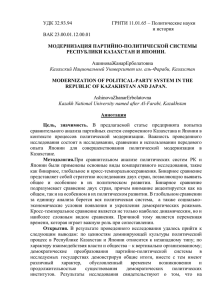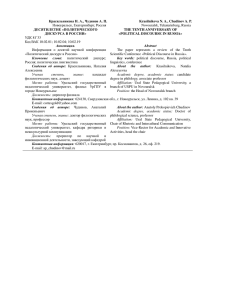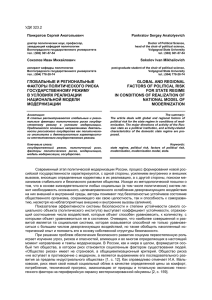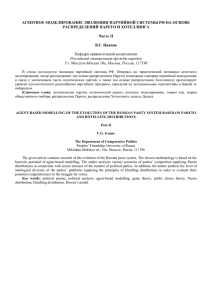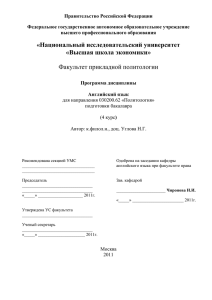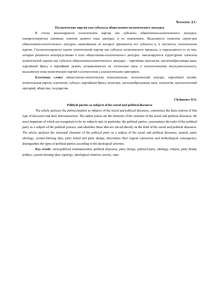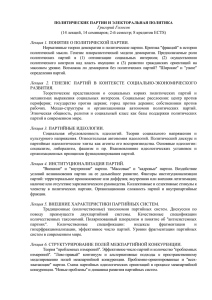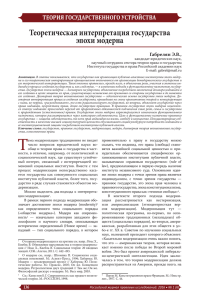Кандыба Р.А. Политические партии как субъекты и объекты
реклама
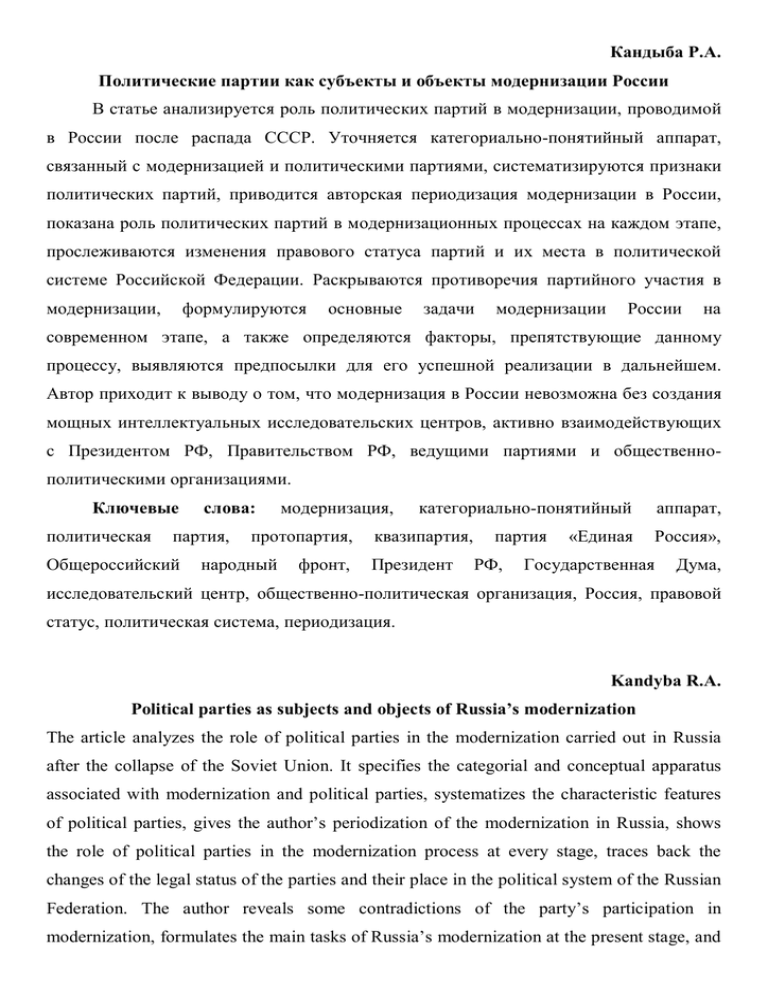
Кандыба Р.А. Политические партии как субъекты и объекты модернизации России В статье анализируется роль политических партий в модернизации, проводимой в России после распада СССР. Уточняется категориально-понятийный аппарат, связанный с модернизацией и политическими партиями, систематизируются признаки политических партий, приводится авторская периодизация модернизации в России, показана роль политических партий в модернизационных процессах на каждом этапе, прослеживаются изменения правового статуса партий и их места в политической системе Российской Федерации. Раскрываются противоречия партийного участия в модернизации, формулируются основные задачи модернизации России на современном этапе, а также определяются факторы, препятствующие данному процессу, выявляются предпосылки для его успешной реализации в дальнейшем. Автор приходит к выводу о том, что модернизация в России невозможна без создания мощных интеллектуальных исследовательских центров, активно взаимодействующих с Президентом РФ, Правительством РФ, ведущими партиями и общественнополитическими организациями. Ключевые политическая слова: партия, Общероссийский модернизация, протопартия, народный фронт, категориально-понятийный квазипартия, Президент партия РФ, «Единая аппарат, Россия», Государственная Дума, исследовательский центр, общественно-политическая организация, Россия, правовой статус, политическая система, периодизация. Kandyba R.A. Political parties as subjects and objects of Russia’s modernization The article analyzes the role of political parties in the modernization carried out in Russia after the collapse of the Soviet Union. It specifies the categorial and conceptual apparatus associated with modernization and political parties, systematizes the characteristic features of political parties, gives the author’s periodization of the modernization in Russia, shows the role of political parties in the modernization process at every stage, traces back the changes of the legal status of the parties and their place in the political system of the Russian Federation. The author reveals some contradictions of the party’s participation in modernization, formulates the main tasks of Russia’s modernization at the present stage, and identifies the factors impeding the process, reveals the preconditions for its successful implementation in the future. The author concludes that the modernization of Russia is impossible without creating powerful intellectual research centers actively interacting with the President of the Russian Federation, the Government of the Russian Federation, the leading parties and socio-political organizations. Key words: modernization, categorial and conceptual apparatus, political party, proto-party, quasi-party, United Russia, People’s Front for Russia, the President of the Russian Federation, the State Duma, research center, socio-political organization, Russia, legal status, political system, periodization.
